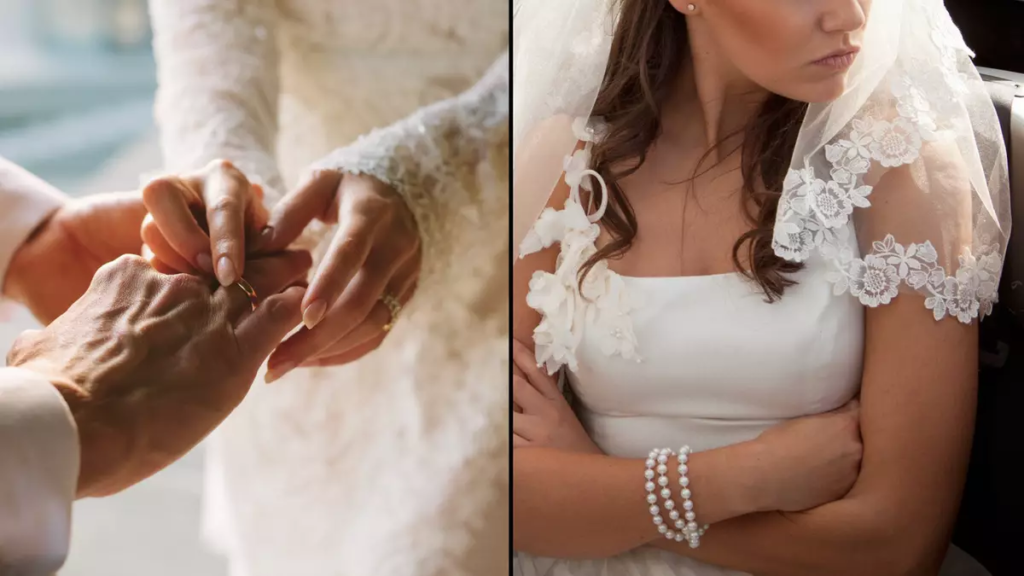The legal intricacies of marriage took an unexpected turn in Australia when a Melbourne woman claimed her marriage was never intended to be real but was a social media prank orchestrated by her groom.
The Federal Circuit and Family Court of Australia annulled the union 11 months later, raising significant questions about consent, intent, and the intersection of social media and personal lives.
Prank Wedding ?
The story began in September 2023 when the woman, in her 20s, met the man, in his 30s, on a dating platform. Their relationship quickly escalated after meeting in person the next day. By late December, the man proposed during a trip they had planned to Sydney, and two days later, they were married.
However, the woman revealed to the court that she believed the wedding ceremony was a mere social media stunt. According to her testimony, the man claimed the event was a “prank wedding” for Instagram content, an explanation she accepted because he portrayed himself as an influencer. Although he denied this characterization during the court proceedings, evidence showed he had over 17,000 Instagram followers.
The bride shared that the groom had asked her to wear a white dress for what he described as a “white party,” a theme they had experienced before.
Read : Store Owner Invites People to Rob the Store for Publicity in Australia
She attended without suspecting ulterior motives, especially since their trip had been planned in advance. But upon arriving at the venue, she noticed inconsistencies: no other guests were dressed in white, and the atmosphere did not match her expectations of a party.
Realization of the Legal Consequences
The woman’s acceptance of the ceremony as a prank stemmed from her misunderstanding of Australian marriage laws. She believed that marriages were only valid if conducted in a court and doubted the legitimacy of the event when no family or friends were present.
The only attendees were a photographer and their assistant. The groom reassured her that the “prank wedding” was purely for his Instagram content, and the bride agreed to play along.

Her assumption unraveled months later, in February 2024, when she discovered that the marriage was legally binding. The groom reportedly pressured her to include him as a dependent on her permanent residency application, raising her suspicions.
As a health professional, the woman had a streamlined pathway to Australian residency, and the revelation of the marriage’s legality shocked and angered her.
Further investigation revealed that the groom had taken deliberate steps to ensure the marriage’s validity. A notice of intended marriage, dated November 20, 2023, predated his December proposal and bore two signatures, one of which the bride denied was hers. The groom insisted the wedding was genuine, but the court found the discrepancies too significant to ignore.
Judicial Findings and Social Implications
Justice Joshua Wilson, who presided over the case, annulled the marriage, emphasizing the lack of genuine consent from the bride. He remarked that the timeline of the engagement and marriage was highly unusual, particularly since the groom had arranged for a wedding celebrant over a month before proposing.
The judge also highlighted cultural and religious inconsistencies in the groom’s narrative. The bride, identified as religious, would have likely preferred a church ceremony over a civil one, making the suddenness of the marriage even more implausible. Justice Wilson concluded that the bride had participated in the ceremony under false pretenses, believing it was an elaborate stunt rather than a legal union.

This case sheds light on the vulnerabilities created by the intersection of social media and personal relationships. The groom’s alleged use of the marriage to gain social media clout underscores how platforms like Instagram can influence behavior in deeply personal areas of life.
Moreover, the case highlights the importance of clear communication and understanding of legal procedures, particularly in a world where digital content often blurs the lines between reality and fiction.
In the broader societal context, this case raises critical questions about the exploitation of trust within relationships. The bride’s willingness to go along with what she believed to be a prank points to a significant breach of trust by the groom. Meanwhile, the groom’s alleged motive to use the marriage for immigration benefits adds another layer of ethical and legal concerns.
As the court annulled the marriage, the woman’s ordeal serves as a cautionary tale about the importance of informed consent and vigilance in relationships, especially in an age where digital influence can distort genuine connections. The legal precedent set by this case may lead to stricter scrutiny of marriages where one party’s intent appears dubious.

